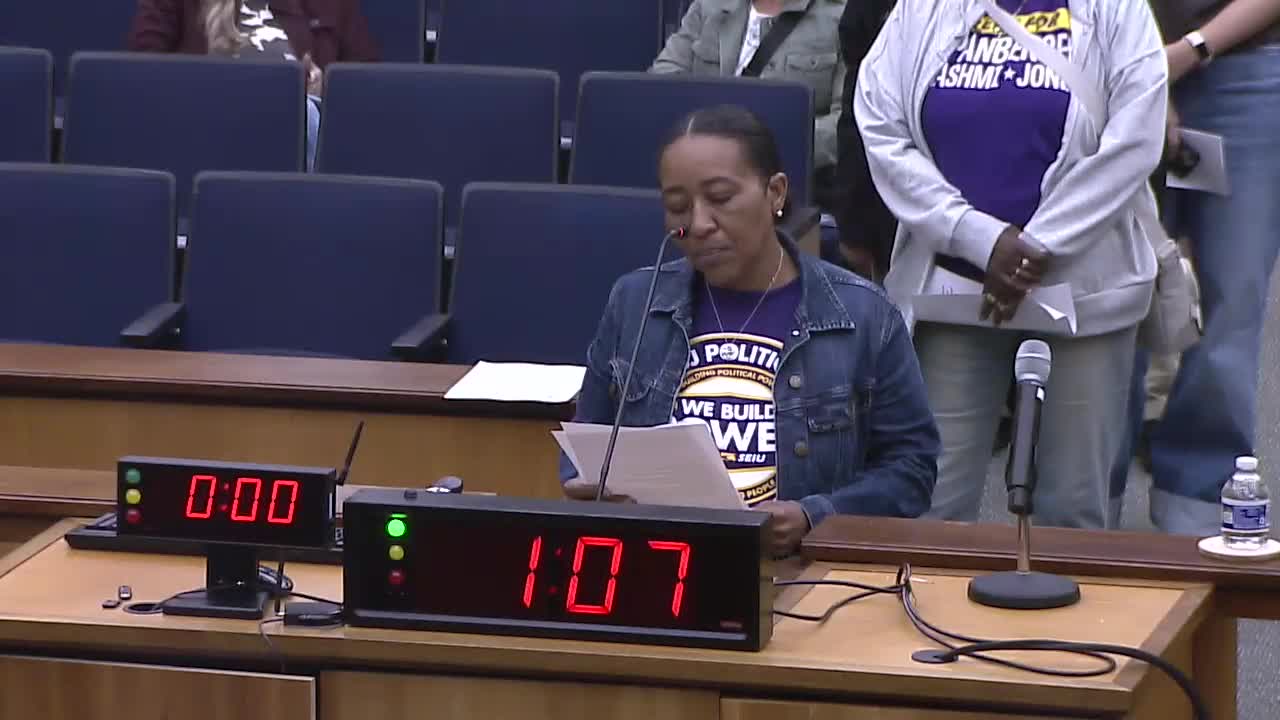Richmond keeps real estate tax at $1.20 after council rejects $1.16 rollback
Get AI-powered insights, summaries, and transcripts
Subscribe
Summary
After a contentious public hearing and debate, Richmond City Council voted to set the real-estate tax rate at $1.20 for the 2026 tax year and rejected an ordinance to lower the rate to $1.16. Supporters of the higher rate said cuts would threaten services and commitments; opponents urged relief for taxpayers.
Richmond City Council voted to keep the city's real estate tax rate at $1.20 for the tax year beginning Jan. 1, 2026, rejecting a separate ordinance that would have set the rate at $1.16.
The decision followed a lengthy public hearing and a council debate about revenue, municipal spending obligations and who would benefit from a rate cut. Council members ultimately voted down ordinance 2025-208, which would have established a $1.16 rate, and then adopted ordinance 2025-207 to set the $1.20 rate.
The matter drew dozens of speakers during the public hearing. Several city contractors and union members said a rate cut would undermine wages and services. "Any proposal ... that reduces the city's budget and in turn threatens programs and workers' wages and community ed support is unacceptable, and we strongly oppose these cuts," said Latrice Gregory of SEIU 32BJ. Richmond Fire Department members and their union leadership also urged caution; Adam Belcastro of the International Association of Firefighters Local 995 said a rollback would "result in reduced public safety funding. We need more investment, not less."
Richmond Public Schools Superintendent Jason Kamris asked the council to preserve recent investments in schools. "I humbly and respectfully ask you to maintain the rate, continue the historic investments in our city's children, and we will continue to produce results," he said.
Speakers who supported lowering the rate argued for fiscal prudence and relief for property owners who pay their taxes on time. One resident, identified in the record only as Katie, said the city should first collect unpaid taxes and then consider rate relief. "Collecting what's owed first would stabilize revenue and build credibility before asking residents to continue paying more," she said.
Administration officials told council members that several factors constrained the city's ability to cut the rate without reducing services. An administration representative warned that rising assessments, the city's low fund balance and large amounts of tax-exempt property restrict flexibility. "Keeping the tax rate at $1.20 ensures that the city can maintain its fiscal stability, continue essential services and remain prepared to absorb these external shocks and stresses," the administration said in its remarks.
Council debate revisited familiar tradeoffs: some members emphasized the hardship rising assessments have placed on long-time residents and urged a rollback in stages; others said the city must protect funding for schools, public safety, and existing contractual commitments. Councilwoman Trammell and Councilwoman Lynch both spoke in favor of relief for homeowners; Council members Gibson and others emphasized the need for more transparency about surplus figures before changing rates.
Votes at the council chamber reflected that division. The ordinance to establish a $1.16 rate (ordinance 2025-208) failed in a roll-call vote; the ordinance to set $1.20 (ordinance 2025-207) passed. The clerk recorded the vote on the $1.20 ordinance as: Bratton Aye; Gibson Abstain; Jones Aye; Robertson Aye; Lynch Aye; Trammell Aye; Abubakar No; Vice President Jordan Aye; President Newbill Aye. The $1.16 measure received support from some members but did not secure majority approval and was not adopted.
Council members and administration staff said additional budget data, including a formal surplus certification, will be available later in the month; the administration noted that state and federal funding uncertainties, plus the city's current fund-balance target, factored into its recommendation.
The council's decision preserves the revenue assumptions used in the fiscal year budget the council adopted earlier this year. Several members said they want to continue conversations about targeted relief, improved tax collection and staged rate adjustments in future budget cycles.
Votes at a glance: ordinance 2025-208 (establish $1.16) ' failed. ordinance 2025-207 (establish $1.20) ' adopted.
